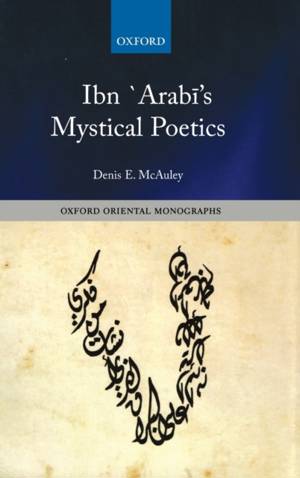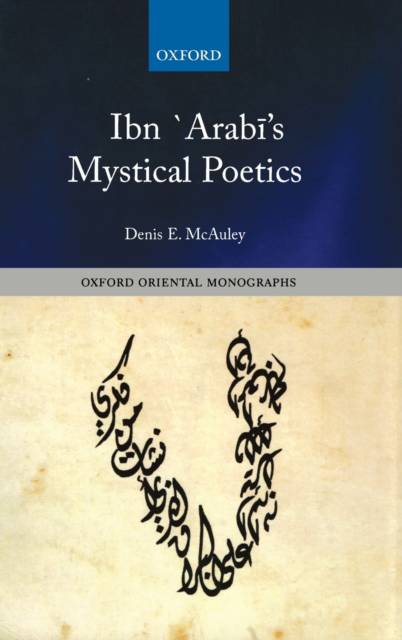
- Afhalen na 1 uur in een winkel met voorraad
- Gratis thuislevering in België vanaf € 30
- Ruim aanbod met 7 miljoen producten
- Afhalen na 1 uur in een winkel met voorraad
- Gratis thuislevering in België vanaf € 30
- Ruim aanbod met 7 miljoen producten
Zoeken
€ 217,95
+ 435 punten
Omschrijving
Muhyī l-Dīn Ibn `Arabī (1165-124) was a hugely influential figure in the development of Sufism, yet although interest in his work continues to grow, his poetry has received very little attention. This book is the first full-length monograph devoted to his Dīwān (collected poems). It begins by attempting to define Ibn `Arabī's poetic style and his understanding of poetics, which is closely intertwined with his metaphysics: the rhythms of poetry echo those of creation, and meaning combines with form just as the spirit descends on matter. Drawing on a pre-Islamic theme, he insists that his poetry was revealed to him word for word by a spirit. At the same time, however, his attitude to the function of poetry and its relation to scripture is closer to mainstream medieval Islamic, Jewish and Christian theology than has usually been thought. Denis E. McAuley focuses on close readings of books in unusual verse forms, including poetic responses to chapters of the Qur'an; imitations of earlier poets; poems that use only one rhyme word; and a cycle of poems modelled on the letters of the alphabet. In so doing, he makes frequent comparisons with other Islamic and European poets from the sixth century to the dawn of the twentieth, many of them virtually unstudied. Ibn `Arabī emerges as a highly original poet whose work casts a fresh light on the period and on classical Arabic literature as a whole.
Specificaties
Betrokkenen
- Auteur(s):
- Uitgeverij:
Inhoud
- Aantal bladzijden:
- 268
- Taal:
- Engels
- Reeks:
Eigenschappen
- Productcode (EAN):
- 9780199659548
- Verschijningsdatum:
- 25/10/2012
- Uitvoering:
- Hardcover
- Formaat:
- Genaaid
- Afmetingen:
- 155 mm x 236 mm
- Gewicht:
- 521 g

Alleen bij Standaard Boekhandel
+ 435 punten op je klantenkaart van Standaard Boekhandel
Beoordelingen
We publiceren alleen reviews die voldoen aan de voorwaarden voor reviews. Bekijk onze voorwaarden voor reviews.








